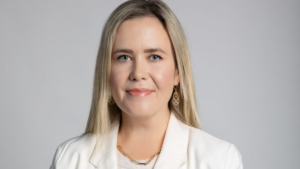
Being continuously curious is something that binds our membership. On the other side of curiosity, however, sits the art of storytelling—sharing boldly to spark ideas, invigoration, conversation and action amongst another.
Today, Global Women member Isobel Kerr-Newell speaks out about the state of women exiting workplaces, the system. Exploring many of the barriers—some emerging in our workplace conversations, others having emerged over and before the pandemic years—Isobel looks at the macro and micro influences behind this unsettling local trend in her opinion piece.
Isobel talks to the many exit points women leaders have in their career—citing more than just the 30’s-40’s window so often pointed to for maternity leave exits.
A bold addition to Isobel’s kõrero, is sharing her very own experiences: launching a business while having her second child in lockdown, which led her to her breaking point, “or as I now think of it, my breakthrough point.”
Isobel talks to the many exit points women leaders have in their career—citing more than just the 30’s-40’s window so often pointed to for maternity leave exits. One of which is menopause. “Increasingly, women in their 50s and 60s are leaving the system too, finding the changes of menopause and incompatibility with the traditional working world means they again need to find a new road,” shares Isobel. This is a topic that Global Women is going to be ramping up conversation about, and are proud to see pick up steam in wider conversations.
“There is still a sense that you need to fit within a certain leadership mould to be in charge.”
“When we examine the other causes of women exiting the system, it can also be connected to the unconscious biases we all hold around leaders and what they look like,” she shares. “There is still a sense that you need to fit within a certain leadership mould to be in charge.”
“Height, volume, physicality, self-confidence and self-promotion all still play a role in the selection processes that begin when we first enter the junior ranks.”
Citing a move from “being one of the boys (or acting like one) [as] the surest route to the C-suite,” Isobel shares how it’s crucial to continue to recognise “the other styles of leaders out there — like myself — who have great value in shaping and leading the modern workforces of today.”
“…It is about consciously addressing and challenging… and asking, ‘Is there a smarter, more productive, healthier way to do this?’”
So what does it look like to put people at the centre of everything, while still building a successful and sustainable business?
Isobel shares how this is woven into the fabric of her new enterprise, Artemis Communications.
“For us, it is about consciously addressing and challenging every aspect of our corporate muscle memory and asking, ‘Is there a smarter, more productive, healthier way to do this?’”
“I am committed to challenging the deep-rooted biases and systems that push women (and men) to the point of re-evaluation.”
“The juggle for me today is still a challenge — the pressures are immense and the winter bugs are still around — but I have been refueled by a fresh challenge and renewed purpose. Throughout our construction and beyond, I am committed to challenging the deep-rooted biases and systems that push women (and men) to the point of re-evaluation. To try to stem the flow of the women disappearing from our workforce and hold tight to the precious taonga our organisations and Aotearoa are losing. To build and shape things differently – for myself, the women around me and for our daughters looking upwards, so that we really can have it all.”
Read Isobel’s full opinion piece and powerful insights over on www.nzherald.co.nz.
